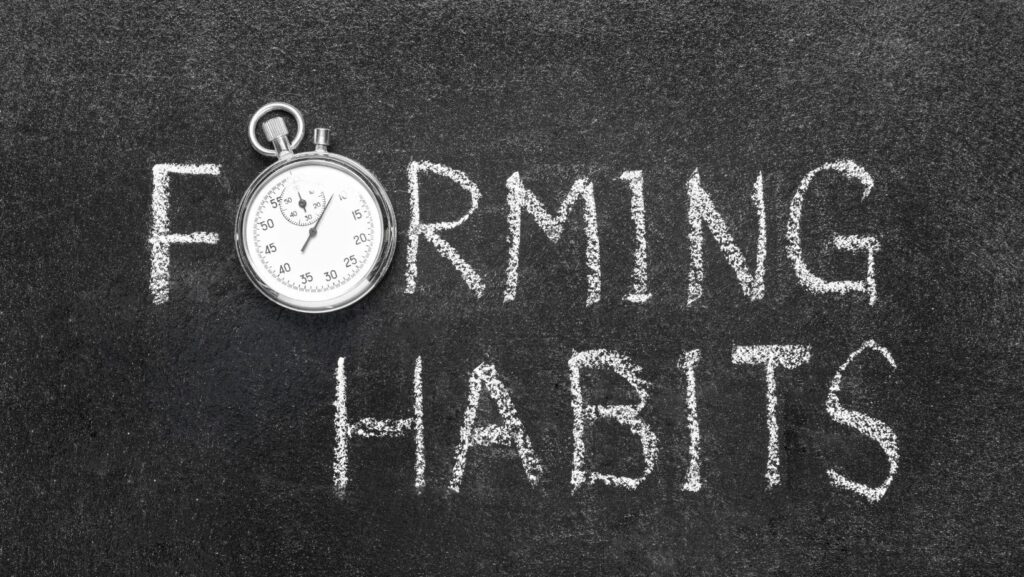Building habit formation in children is crucial for their development and overall well-being. From learning to brush their teeth to developing a love for reading, these early habits lay the foundation for a lifetime of positive behaviors. Understanding how children form habits can empower parents and educators to guide them effectively.
Children are naturally curious and adaptable, making them prime candidates for habit formation. However, the process isn’t always straightforward. Factors such as environment, routine, and parental influence play a significant role in shaping these behaviors. By recognizing the key elements that contribute to habit formation, caregivers can foster an environment that encourages good habits and sets children up for success in the future.
Habit Formation In Children
Habit formation in children involves developing consistent behaviors that become automatic over time. Recognizing the nature of habits and their significance in early life aids caregivers in fostering positive actions.
What Are Habits?
Habits are established practices that occur regularly and often subconsciously. They consist of three components: cues, routines, and rewards. Cues trigger the behavior, routines encompass the behavior itself, and rewards provide reinforcement. For example, brushing teeth after lunch can lead to healthier dental hygiene, supported by positive feedback such as compliments or praise. Children tend to imitate behaviors observed in their environment, making modeling good habits essential for effective habit formation.
Importance of Habit Formation In Early Life
Habit formation plays a crucial role in children’s development and well-being. It influences their emotional, social, and cognitive growth. Healthy habits, such as regular exercise and balanced nutrition, contribute to physical health, while habits like reading and homework routines enhance academic performance. Establishing these habits early lays the groundwork for lifelong behaviors, creating a proactive approach toward challenges. Research shows that children who engage in regular positive habits demonstrate increased self-discipline and overall happiness, contributing to their future success.
Stages of Habit Development
Habit development in children occurs through distinct stages that enhance the likelihood of establishing lasting behaviors. Understanding these stages aids caregivers in fostering effective habits.
Initial Learning Phase
In the initial learning phase, children observe and imitate behaviors. This phase often surfaces in structured environments, such as homes and schools. During this stage, cues from family members or educators prompt specific actions. For instance, a child may learn to brush their teeth after dinner when they see a parent modeling this routine. Repetition of the behavior strengthens recognition of the cue, making it more likely to continue.
Reinforcement Phase
In the reinforcement phase, positive reinforcement solidifies habit formation. Rewards such as praise or tangible incentives motivate children to persist in their newly acquired habits. For example, consistent compliments for completing homework can increase a child’s willingness to engage in study practices. The combination of cues and rewards fosters a routine that encourages habit retention and supports long-term commitment to behaviors initiated in the earlier learning phase. Continued reinforcement helps integrate habits into daily life, making them a natural part of a child’s routine.
Influences On Habit Formation
Various factors significantly influence habit formation in children. These influences include parental guidance, environmental conditions, and educational practices.
Role of Parents and Caregivers
Parents and caregivers play a critical role in guiding children’s habit formation. They serve as primary role models; children often imitate behaviors observed in adults. Consistent routines established by caregivers support the development of new habits. For instance, when a parent regularly reads before bedtime, a child is likely to adopt a similar practice. Additionally, positive reinforcement methods—like verbal praise or reward systems—encourage children to engage in and maintain healthy habits. Research shows that active participation from parents in habit-building activities leads to stronger, more persistent behaviors.
Impact of Environment and Education
The environment and educational settings significantly affect habit formation. A structured environment, such as a classroom, provides cues for appropriate behavior. Schools that integrate wellness programs promote healthy habits through consistent messaging and cooperative activities. For instance, physical education classes and nutrition programs reinforce the importance of exercise and healthy eating. Furthermore, supportive peer influences encourage children to adopt positive habits, fostering a culture of wellness. The home environment, filled with resources like books, healthy foods, and opportunities for physical activity, also enhances the likelihood of developing beneficial habits. Studies indicate that environments rich in supportive resources lead to better habit retention in children.
Techniques to Encourage Positive Habits
Encouraging positive habits in children involves deliberate techniques that foster consistency and motivation. Implementing specific strategies can effectively help solidify these behaviors.
Consistency and Routine
Establishing consistent routines plays a vital role in habit formation. Children thrive in environments where expectations remain clear and predictable. Daily schedules, such as designated times for homework, exercise, and meals, reinforce positive behaviors. Incorporating structured routines encourages children to engage in healthy activities without constant prompting. For example, setting aside 20 minutes each day for reading creates a habit that promotes literacy. Consistency not only enhances habit retention but also fosters a sense of security and stability for children.
Reward Systems
Implementing reward systems can significantly boost children’s motivation to develop and maintain positive habits. Children respond well to tangible recognition of their efforts. Therefore, caregivers can create incentives that align with specific behaviors. For instance, using a sticker chart to track achievements offers visual reinforcement that celebrates progress. Small rewards, like extra screen time or a special treat, can motivate children to adhere to new habits. Reinforcing positive behavior through rewards helps establish a connection between effort and outcomes, making it more likely for children to internalize these habits over time.
Challenges in Habit Formation
Habit formation in children faces obstacles that hinder their ability to adopt and maintain positive behaviors. Understanding these challenges helps caregivers create effective strategies for fostering healthy habits.
Resistance to Change
Children often exhibit resistance to change due to routine preferences and comfort with familiar activities. Familiarity instills a sense of security, making them reluctant to embrace new behaviors. Change may provoke anxiety or frustration, especially if new habits disrupt their established routines. Presenting changes gradually, allowing children to adjust, facilitates smoother transitions. Caregivers can introduce new activities slowly, pairing them with enjoyable experiences to increase acceptance and decrease resistance.
Common Pitfalls
Several common pitfalls can undermine habit formation efforts in children. Distractions, inconsistency, and lack of clear expectations contribute to these challenges.
- Inconsistent Messaging: Fluctuating guidance from caregivers creates confusion. Children benefit from stable rules and predictable consequences.
- Overwhelming Choices: Too many options can overwhelm children and lead to decision fatigue. Simplifying choices promotes focus on key behaviors.
- Lack of Patience: Expecting immediate results can lead to frustration. Children require time to internalize habits and may regress before achieving consistency.
- Neglecting Fun: Not incorporating enjoyable elements risks disengagement. Integrating playful activities fosters enthusiasm and engagement in new habits.
By recognizing these challenges, caregivers can proactively implement strategies that support effective habit formation in children.
Journey of Habit Formation
Building healthy habits in children is vital for their overall development and future success. By recognizing the role of environment and routine in habit formation caregivers can create supportive spaces that encourage positive behaviors. Consistency and positive reinforcement are essential in helping children internalize these habits.
As children grow and adapt they’ll carry these foundational habits into adulthood. The journey of habit formation may have its challenges but with patience and persistence caregivers can guide children toward a healthier and more fulfilling life. Prioritizing habit formation today sets the stage for a brighter tomorrow.



